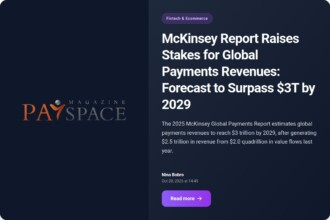The Reserve Bank of India (RBI) has banned Paytm Payments Bank from all forms of banking services, including bank transfers and accepting deposits.

Following a thorough external audit, India’s central bank RBI has ordered Paytm Payments Bank, a division of one of India’s largest payment firms Paytm, to stop accepting deposits or top-ups in customer accounts, prepaid instruments, wallets, NCMC cards, and FASTags after February 29, 2024.
Starting today, Paytm Payments Bank is prohibited from onboarding new customers. Furthermore, the regulator’s order states that “no other banking services like fund transfers, credit transactions, BBPOU and UPI facility should be provided by the bank” since the end of February. Fund withdrawals are currently allowed in a usual manner.
The settlement of all pipeline transactions and nodal accounts of One97 Communications Ltd, which holds a 49% stake in the banking unit and Paytm Payments Services Ltd must be completed before March 15, 2024.
The RBI has been scrutinising the corporate policies of Paytm Bank since 2022. At that time, the regulator directed the bank to appoint an Income Tax audit firm to conduct a thorough system audit of its IT systems. Customer onboarding was also paused.
The most recent comprehensive compliance review by external auditors has finally revealed persistent non-compliance issues and continued material supervisory concerns in the bank. The external auditors produced a comprehensive system audit report and subsequent compliance validation report which highlighted policy inconsistencies.
The action against Paytm Payments Bank was taken under Section 35A of the Banking Regulation Act, 1949, the central bank stated officially, without giving further details about the specific nature of non-compliance.
Paytm Payments Bank said it was taking “immediate steps” to comply with the RBI’s directions.
Once scrutiny has started, the bank has lost a few important investors. In 2023, Chinese e-commerce giant Alibaba Group sold a 3.1% stake in its parent company Paytm, while American Berkshire Hathaway Inc. has also sold its 2.5% stake in the payment provider.









